35 Chores Boomers Did Without Complaining (Even When They Wanted To)
Ah, the good old days, when chores were as much a part of daily life as breathing. Back then, there was no debating or negotiating—chores were an inevitable part of growing up.
You might even say they built character, although at the time, it just felt like hard work. From washing dishes by hand to mowing the lawn, these responsibilities were ingrained in the routine of every Boomer’s life.
Let’s take a nostalgic journey through 35 daily chores Boomers knew all too well!
1. Hand-Washing Dishes

Washing dishes by hand was more than a chore; it was a ritual. No dishwashers to rely on, just you and the sink. You’d grab a sponge, some soap, and tackle the mountain of plates and cutlery. Sometimes, you’d even find yourself humming a tune, turning a mundane task into a moment of reflection. After all, who needed a dishwasher when you had elbow grease?
The process wasn’t just about getting dishes clean but about doing it promptly after every meal. Procrastination wasn’t an option. Plates couldn’t linger in the sink like they do today. Remember the satisfaction of stacking those sparkling clean dishes on the drying rack? Pure bliss.
And let’s not forget the occasional battle with caked-on food. It was you against the remnants of last night’s casserole. A little soak, some scrubbing, and voila! Victory was yours. Looking back, it was a time when simple tasks taught patience and perseverance.
2. Mowing the Lawn
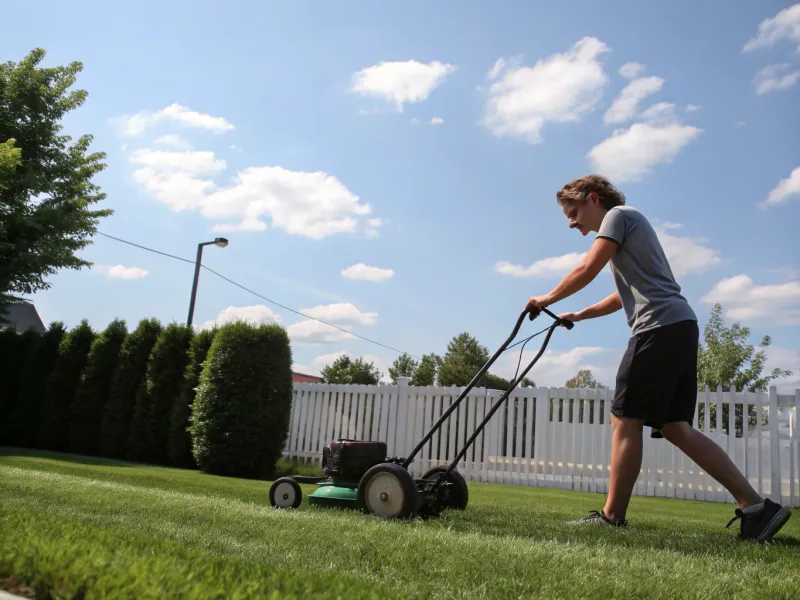
Mowing the lawn wasn’t just about maintaining grass; it was about pride in your home’s appearance. Every Saturday morning, you’d hear the hum of mowers echoing through the neighborhood. There was no such thing as outsourcing this job. A push mower was your trusty companion.
Rows of manicured grass were a testament to your diligence. You could spend hours perfecting those lines, ensuring every inch was trimmed to perfection. There wasn’t a lawn care service in sight—just you, pushing that mower back and forth.
Sometimes, you’d get crafty, creating patterns as unique as a painter’s brushstrokes. And while it may have been hot and exhausting, the smell of freshly cut grass was a reward in itself, a sensory reminder of a job well done. These were the moments that made you appreciate the effort behind a well-kept lawn.
3. Ironing Clothes

Ironing clothes was about presenting yourself with pride and dignity. Wrinkle-free attire spoke volumes about your character. Every wrinkle had to be smoothed out, every crease had to be perfect. The iron was your tool, and the board was your canvas.
You’d set up in the living room, ready to tackle the week’s worth of shirts and slacks. There was an art to it, from the precise temperature settings to the rhythm of moving the iron. Unlike today’s wrinkle-free fabrics, everything demanded attention.
It was a task that required patience, precision, and a keen eye. And as you hung each garment, you’d admire the crisp lines and smooth finish, knowing that your efforts had paid off. Ironing was more than a duty; it was a skill that defined your appearance and left a lasting impression.
4. Polishing Furniture
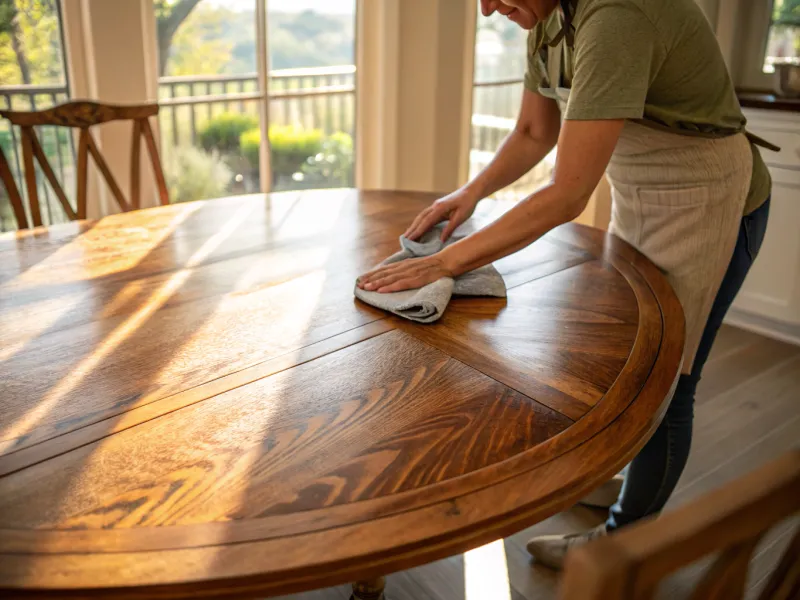
Polishing furniture was about preserving the shine and elegance of your home interiors. Dusting wasn’t enough; a good polish added that extra glow. You’d take a soft cloth and a can of polish, and transform dull surfaces into gleaming masterpieces.
Each stroke was like uncovering the hidden beauty of woodwork. The scent of polish would linger in the air as you buffed tables, chairs, and cabinets to mirror-like perfection. It was a task that demanded attention to detail and love for your home.
Furniture polishing was as much about aesthetics as it was about tradition. These pieces weren’t just furniture; they were family heirlooms, and maintaining them was a way of honoring the past. With each shine, you kept history alive, ensuring your home remained a reflection of your care and commitment.
5. Sweeping Floors

Sweeping floors went beyond mere cleanliness; it was about keeping one’s living space neat and tidy. Armed with a broom, you’d tackle every nook and cranny, ensuring no speck of dust dared linger. In those days, vacuums were a luxury, not a necessity.
You’d start in the corners, gathering every bit of dirt and debris into the center of the room. It wasn’t just a chore; it was a rhythmic dance of sorts, with the swish of the broom providing the soundtrack.
Each sweep brought a sense of accomplishment, knowing that your efforts contributed to a welcoming home. The satisfaction of a clean floor, free from the day’s mess, was its own reward. Sweeping taught discipline and instilled a sense of pride in maintaining a tidy environment.
6. Dusting the House

Dusting wasn’t just an errand; it was a quest to banish every speck and make surfaces shine. With a feather duster in hand, you’d become a warrior against dust bunnies. No shelf was too high, no corner too obscure.
Your mission was to restore each surface to its former glory. Bookshelves, mantels, and picture frames were given special attention, each swipe revealing the true beauty beneath. Dusting was never just a once-over; it was a deep dive into the heart of the home.
The process wasn’t complete until every nook and cranny was spotless. As you moved from room to room, your efforts were rewarded with gleaming surfaces and a sense of satisfaction. Dusting was a reminder that even the smallest tasks could have a big impact on the atmosphere of a home.
7. Laundry Day
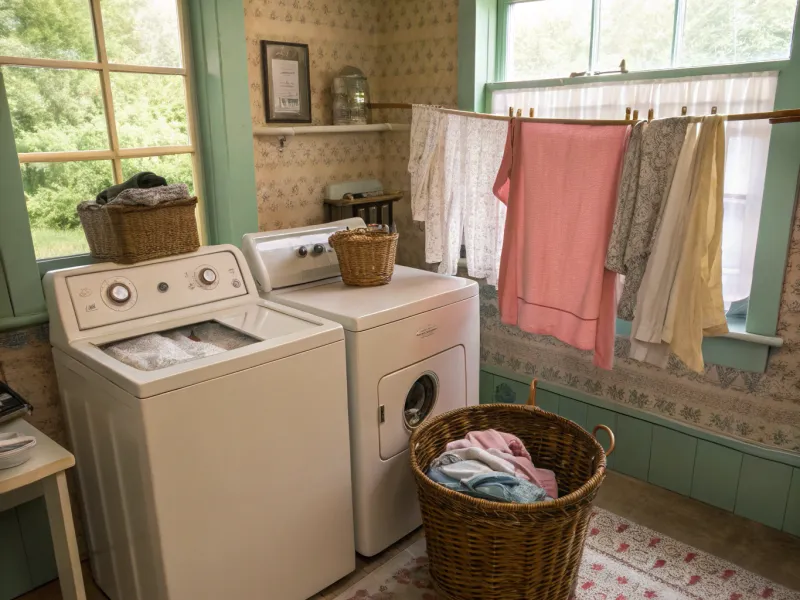
Laundry day was about more than just cleaning clothes; it was a full-scale operation. Sorting, washing, drying, folding—the process was a multi-step affair. In the days before laundromats on every corner, this was handled at home.
The washing machine would chug away, and then it was off to the backyard or laundry room to hang clothes on the line. You’d skillfully pin each item, allowing the natural breeze to do the drying. There was something almost meditative about watching clothes sway in the wind.
Once dry, folding was an art form, ensuring every crease was perfect. Laundry day was a commitment, and seeing piles of freshly laundered clothes was a testament to your hard work. It was a day-long dedication to cleanliness and order, and there was no sidestepping it.
8. Cooking Dinner

Cooking dinner was more than just preparing food; it was a nightly event. With recipes passed down through generations, it was an opportunity to connect with family heritage and nourish loved ones.
Every evening, you’d gather ingredients, often from a garden, and whip up a meal from scratch. Convenience foods were scarce, and takeout wasn’t a regular option. It was about creativity, resourcefulness, and a dash of culinary flair.
As the aroma filled the home, family members would gather, eager for a taste of the day’s efforts. Cooking dinner was about more than sustenance; it was a way to bring everyone together, share stories, and create memories over a delicious meal. It was a tradition that underscored the importance of home-cooked love.
9. Washing Windows
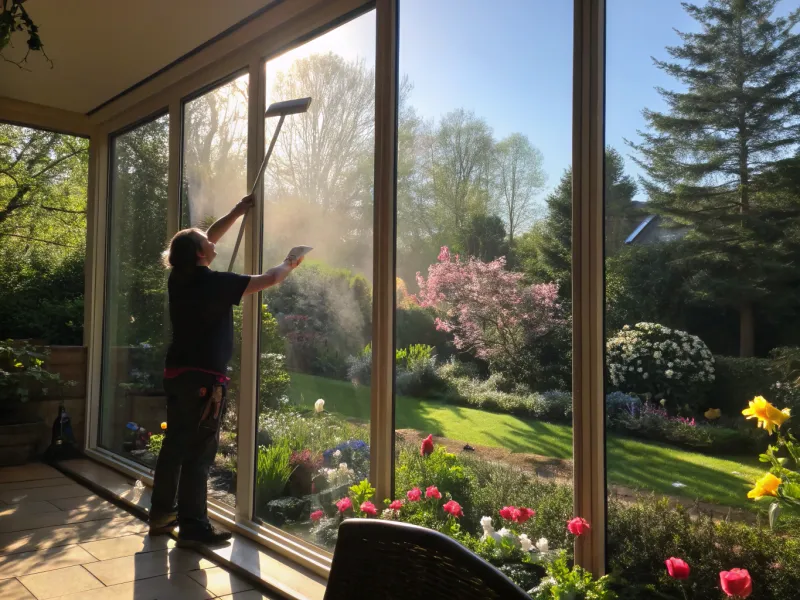
Washing windows was a task that brought clarity to the home—literally. Crystal-clear windows were a reflection of one’s commitment to a bright and welcoming environment. Armed with a bucket of soapy water and a squeegee, you’d tackle each pane with precision.
The process was meticulous. Every streak needed eliminating, every smudge required attention. It was about letting the outside world in, without any barriers. The satisfaction of sparkling glass was unlike any other.
With every swipe, you’d enhance the view, allowing sunlight to flood the rooms with warmth. It was a chore that required patience and attention to detail, but the results were always worth the effort. Clean windows were a testament to the care and pride taken in maintaining a beautiful home.
10. Gardening

Gardening was more than a hobby; it was a way of life. Growing your own vegetables and flowers was a testament to self-sufficiency and the rewards of hard work. Armed with a spade and a watering can, the garden became your personal canvas.
Every seed planted was a promise of growth, requiring daily care and attention. From weeding to watering, the garden demanded dedication. But seeing those seeds sprout into vibrant plants was worth every bead of sweat.
Gardening taught patience and the joy of nurturing life. Whether it was fresh produce for dinner or blooming flowers for the table, the fruits of your labor were tangible. It was a connection to the earth and a reminder of the cycles of nature, grounding you in the rhythm of life.
11. Taking Out the Trash

Taking out the trash was the final act of tidying up, a necessary step in maintaining a clean and pleasant home. It wasn’t just about tossing garbage; it was a symbol of starting fresh.
You’d gather the week’s refuse, ensuring everything was securely bagged and ready for collection. It was a simple task but one that couldn’t be overlooked. Punctuality was key, as missing the garbage truck meant dealing with an overflowing bin for another week.
There was a certain satisfaction in seeing the trash can empty, knowing the home was free from clutter. It was a task that taught responsibility and the importance of routine. Taking out the trash was a small but vital part of keeping a household running smoothly.
12. Making the Bed

Making the bed was the day’s first accomplishment, setting the tone for a productive day. It was more than just straightening sheets; it was about creating order from chaos.
Every morning, you’d smooth out wrinkles, fluff pillows, and tuck in blankets with precision. The result was a perfectly made bed, a testament to your attention to detail and discipline.
This seemingly simple task instilled a sense of pride and readiness. It was a way to show respect for your personal space. Making the bed was a ritual that signified the transition from rest to activity, preparing you for whatever the day might bring.
13. Walking the Dog

Walking the dog was a daily promise, a commitment to companionship and care. It wasn’t just exercise for the pup; it was an opportunity to connect with nature and neighbors.
Every morning and evening, you’d grab the leash and venture out, no matter the weather. The dog’s excitement was contagious, making the walk a joyful experience.
It was a time to clear your mind, enjoy the fresh air, and appreciate the simple pleasure of a wagging tail. Walking the dog taught responsibility and the joy of unconditional love. It was a reminder that caring for another being was a rewarding and fulfilling experience.
14. Running Errands

Running errands was about getting things done, a necessary part of keeping the household running smoothly. From grocery shopping to picking up dry cleaning, it was a day dedicated to ticking off the to-do list.
You’d plan your route, ensuring each stop was efficient and productive. It was a chance to interact with shopkeepers and become part of the community fabric.
Every errand completed was a step towards a well-organized life. It was about ensuring the home was stocked with essentials and that every need was anticipated. Running errands was a balancing act, combining time management with practical skills. It was a testament to the hustle and bustle of maintaining a busy household.
15. Clearing the Table

Clearing the table was the grand finale of every meal, a task that signified the end of dining and the beginning of cleanup. It wasn’t just about removing plates; it was about restoring order to the dining room.
After every dinner, you’d gather dishes, glasses, and cutlery, ensuring everything made its way to the kitchen for washing. It was a team effort, often shared among family members.
The task taught discipline and cooperation, as everyone played a part in maintaining a tidy household. Clearing the table was a way to show gratitude for the meal and respect for the shared space. It was a small act that contributed to the rhythm and harmony of family life.
16. Feeding the Pets

Feeding the pets was a cherished daily ritual, a moment of care and connection with the furry members of the family. It wasn’t just about filling a bowl; it was about fulfilling a promise of love and attention.
Every morning and evening, you’d prepare their meals, ensuring portions were just right. The joy on their faces as they gobbled up dinner was worth every effort.
Feeding the pets taught responsibility and empathy, fostering a bond that transcended words. It was a reminder of the unconditional love pets give in return for the simplest acts of care. This daily chore was an opportunity to nurture and cherish the animals that brought joy and companionship into the home.
17. Setting the Table

Setting the table was an art form, a prelude to the family meal. It wasn’t just about laying out plates and cutlery; it was about creating an inviting atmosphere for dining.
Every evening, you’d arrange the table with care, ensuring everything was perfectly in place. It was an exercise in attention to detail, from the position of the forks to the alignment of glasses.
Creating a welcoming table was a way of showing respect for the meal and those who would share it. It was a small ritual that added warmth and elegance to daily life, reminding everyone of the importance of coming together over food.
18. Vacuuming the Carpet

Vacuuming the carpet was about revitalizing the home’s interior, transforming floors from dusty to spotless. The vacuum cleaner, a trusty ally, roared to life, ready to tackle every corner.
You’d move methodically, ensuring every inch was covered and every crumb collected. The hum of the vacuum was a familiar soundtrack, a signal of cleanliness in progress.
A freshly vacuumed carpet was a source of pride, a testament to your dedication to a tidy home. It was a task that brought immediate satisfaction, turning a mundane chore into a rewarding experience. Vacuuming the carpet was a reminder of the beauty that comes from a little effort and attention to detail.
19. Cleaning the Bathroom

Cleaning the bathroom was about more than hygiene; it was about creating a sanctuary of cleanliness and freshness. Armed with scrubbing brushes and cleaning products, you’d dive into the task with zeal.
Every surface needed attention, from mirrors and sinks to tiles and tubs. It was a mission to banish germs and grime, leaving behind nothing but a pristine space.
There was a certain satisfaction in seeing a sparkling bathroom, knowing your efforts had transformed it into a welcoming oasis. Cleaning the bathroom was a task that taught perseverance and the importance of maintaining a healthy living environment.
20. Shoveling Snow

Shoveling snow was a winter rite of passage, a battle against the elements that required strength and determination. The snow shovel was your weapon, and the driveway was your battlefield.
You’d rise early, bundled in layers, ready to tackle the blanket of white that threatened to block the day’s plans. It was a grueling task, each shovelful a test of endurance and resolve.
But with each cleared path came a sense of victory and pride. Shoveling snow taught resilience and the value of hard work, reminding you that even the most daunting tasks could be conquered with persistence and grit. It was a reminder that nature’s challenges were no match for human determination.
21. Washing the Car
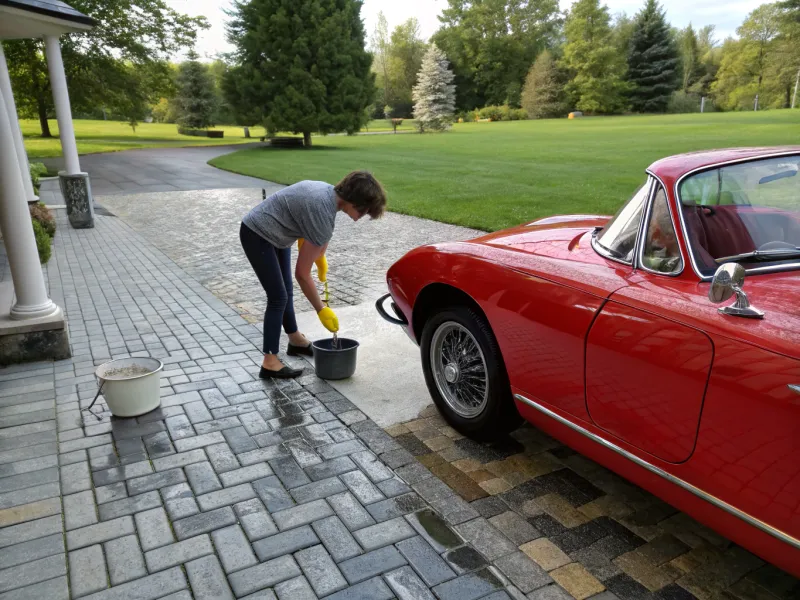
Washing the car was about more than aesthetics; it was a ritual of care and pride. Armed with a bucket, sponge, and hose, you’d transform a dusty vehicle into a gleaming machine.
Every inch needed attention, from the tires to the roof, ensuring not a spot was missed. It was a task that required elbow grease and a keen eye for detail.
The satisfaction of a sparkling car was unmatched, a reflection of your dedication to maintaining your prized possession. Washing the car was a reminder that effort and attention to detail could elevate even the simplest of tasks into something rewarding and worthwhile.
22. Weeding the Garden

Weeding the garden was about more than aesthetics; it was about nurturing your personal patch of paradise. Kneeling in the dirt, you’d search for invaders among your beloved plants.
Removing weeds required patience and precision, ensuring they didn’t return to disrupt the garden’s harmony. It was a task that connected you to the earth and the cycle of growth.
With each weed pulled, the garden flourished, rewarding your efforts with vibrant blooms and healthy produce. Weeding was a lesson in persistence and the rewards of maintaining balance in nature. It was a reminder of the beauty that comes from dedication and care.
23. Painting the Fence
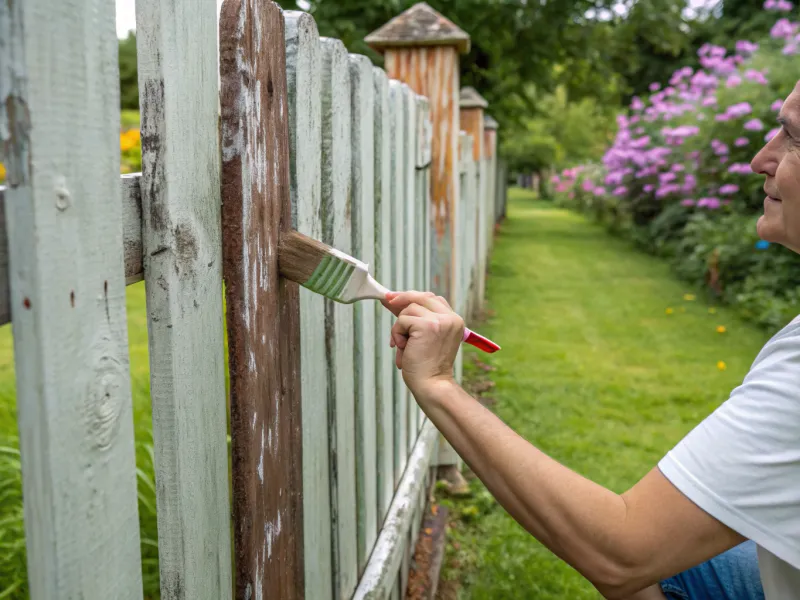
Painting the fence was about protecting and beautifying your property, a task that combined creativity with practicality. With a brush in hand, you’d transform dull wood into a vibrant boundary.
Each stroke was a commitment to maintaining the home’s appearance, ensuring the fence stood strong against the elements. It was a task that required patience and a steady hand.
The result was a freshly painted fence, a testament to your dedication and pride in home ownership. Painting was a reminder of the value of upkeep, turning a simple chore into an expression of care and creativity.
24. Washing Clothes by Hand
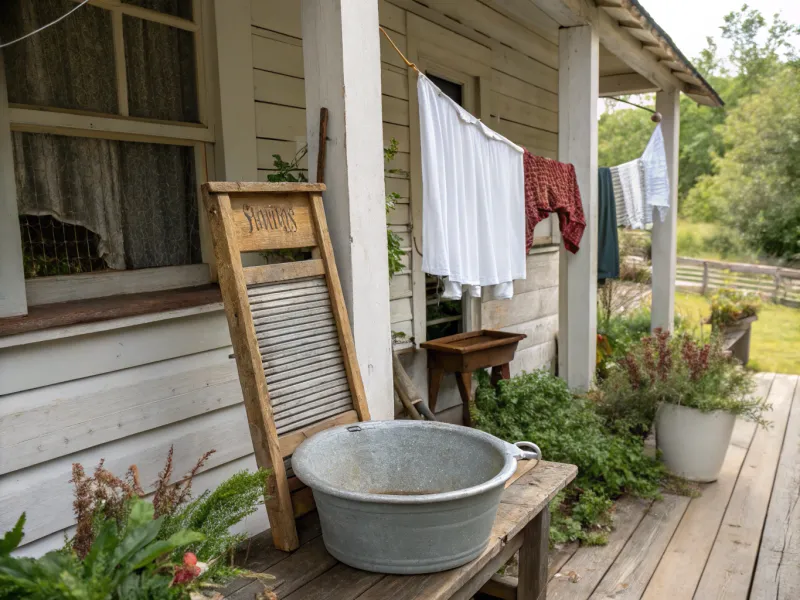
Washing clothes by hand was a labor of love, a task that required time and effort. Armed with a washboard and soap, you’d scrub each garment, ensuring it was spotless.
The process was repetitive but rewarding, each piece a testament to your hard work. There was something soothing about the rhythm of washing, a moment to reflect and unwind.
Once clean, clothes were wrung out and hung to dry, the sun and breeze completing the process. Washing by hand taught patience and the value of perseverance, reminding you of the satisfaction that comes from doing things the old-fashioned way.
25. Chopping Wood
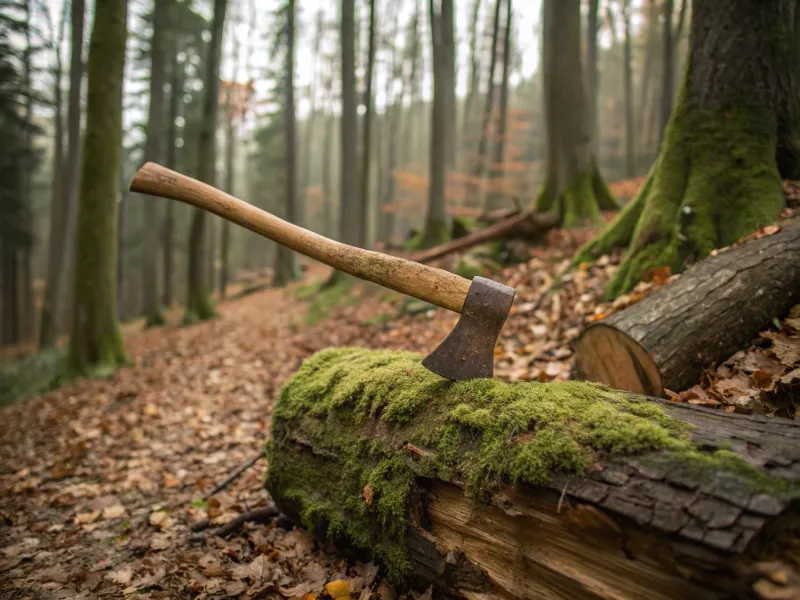
Chopping wood was about more than fuel for the fire; it was a test of strength and endurance. With axe in hand, you’d swing with precision, splitting logs into perfect pieces.
Each chop was a workout, demanding focus and energy. It was a task that connected you to nature, providing warmth and comfort for the home.
The stack of neatly chopped wood was a testament to your hard work and dedication. Chopping wood taught resilience and the rewards of manual labor, reminding you of the satisfaction that comes from a job well done. It was a chore that built character, one log at a time.
26. Hanging Clothes on the Line

Hanging clothes on the line was about more than drying laundry; it was a ritual of simplicity and freshness. Armed with a basket of wet clothes and a handful of pins, you’d transform washday into a symphony of flapping fabric.
Each piece was carefully draped and clipped, ensuring it caught the sun and breeze. The result was laundry dried naturally, imbued with the fresh scent of the outdoors.
Hanging clothes taught patience and the beauty of taking time to do things right. It was a reminder of the simple pleasures in life, and the joy that came from embracing the natural world. It was a chore that turned necessity into an art form, one garment at a time.
27. Raking Leaves

Raking leaves was about more than clearing the yard; it was about embracing the changing seasons. Armed with a rake, you’d create piles of vibrant leaves, ready for jumping.
Each sweep of the rake was rhythmic, gathering the autumn bounty into neat heaps. It was a task that required energy and enthusiasm, turning a chore into a playful opportunity.
Raking taught the value of hard work and the joy of seasonal traditions. It was a reminder of the beauty of nature’s cycles, and the satisfaction that came from transforming chaos into order. It was a chore that connected you to the earth and the rhythm of the seasons.
28. Cleaning Out the Garage

Cleaning out the garage was about creating order from chaos, transforming a cluttered space into a haven of organization. Armed with determination, you’d sort through boxes, bikes, and tools, finding a place for everything.
The task required patience and creativity, ensuring the garage was functional and tidy. It was about creating space for activities and ensuring everything was accessible.
Cleaning taught the importance of organization and the value of a well-kept space. It was a reminder of the rewards of hard work and the satisfaction that came from transforming disorder into harmony. It was a chore that turned a storage area into a place of potential and possibility.
29. Cleaning the Attic
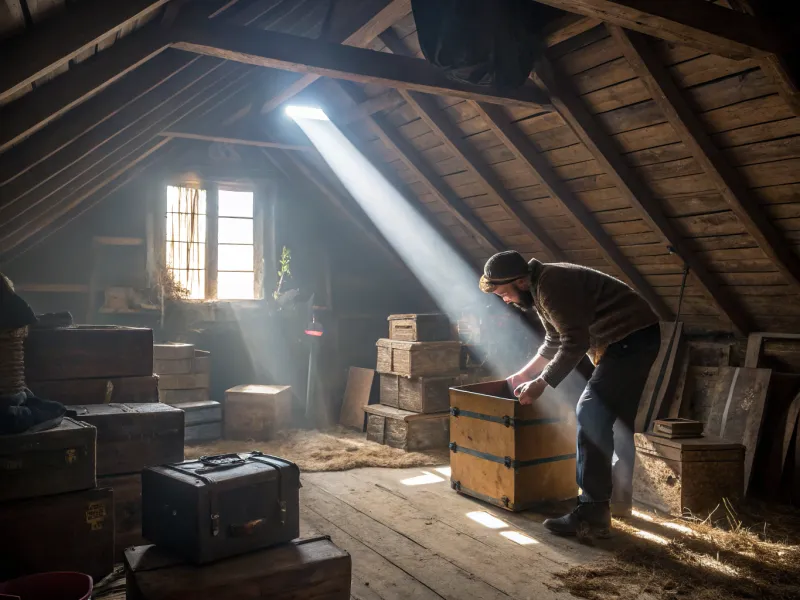
Cleaning the attic was about more than dusting and organizing; it was a journey into the past. Armed with a broom and a sense of adventure, you’d uncover forgotten treasures among the boxes.
The task required patience and care, ensuring the attic was a functional and tidy space. It was about preserving memories and creating room for new ones.
Cleaning taught the value of organization and the beauty of history. It was a reminder of the importance of maintaining a clean and functional space. It was a chore that turned a storage area into a sanctuary of memories and possibilities.
30. Repairing Broken Items
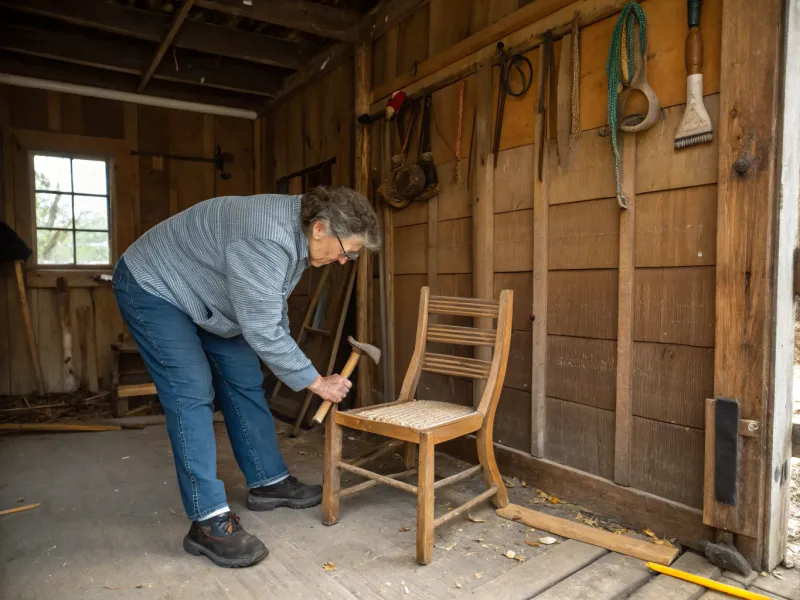
Repairing broken items was a common chore for boomers, fostering a sense of resourcefulness. Instead of simply replacing damaged goods, the focus was on repairing and extending the usability of these items. This task not only saved money but also taught valuable skills.
The process of fixing things, whether it be furniture, tools, or household items, involved assessing the damage and deciding the best approach to mend it. Often, this meant spending weekends in garages or workshops, learning to be handy with tools.
This chore went beyond mere fixes; it was about innovation and creativity. It encouraged boomers to think critically and find solutions, a practice that still benefits them today.
31. Scrubbing the Floors

Scrubbing the floors was about more than cleaning; it was a testament to diligence and dedication. Armed with a brush and soapy water, you’d transform dull tiles into gleaming surfaces.
The task required elbow grease and determination, ensuring every inch was spotless. It was about creating a welcoming space and maintaining a pristine environment.
Scrubbing taught the value of hard work and the satisfaction that came from a job well done. It was a reminder of the rewards of effort and the beauty of a clean home. It was a chore that turned necessity into an opportunity for pride and accomplishment.
32. Sewing and Mending Clothes
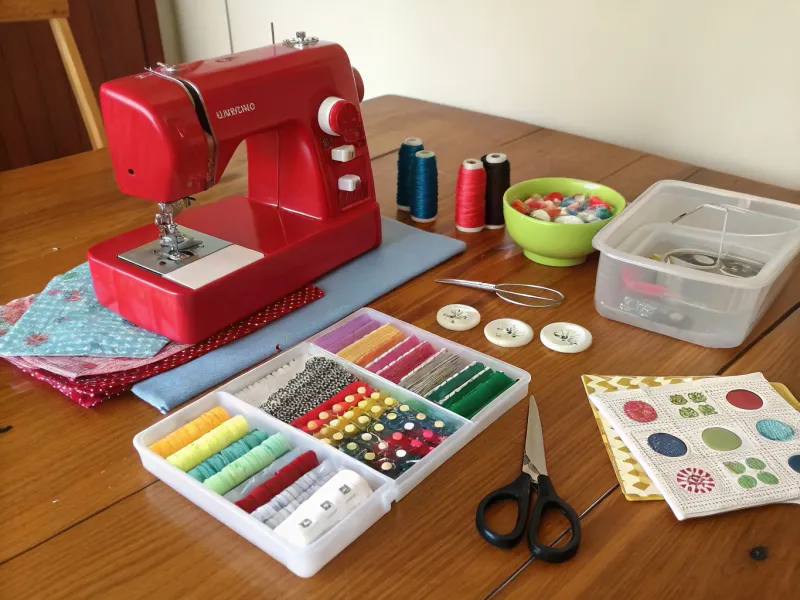
Sewing and mending were ingrained skills for many boomers, especially women who took pride in maintaining their family’s wardrobe. This task was not only about fixing tears but also about extending the life of clothing, making it an economic necessity.
Mothers passed down sewing techniques to their children, turning it into a shared activity and a rite of passage. Many evenings were spent in front of a sewing machine, surrounded by fabric and thread, crafting new outfits or repairing old ones, a testament to resourcefulness.
The satisfaction of transforming a ripped shirt into a wearable piece was immense. It taught patience, precision, and the value of self-reliance. Plus, it was a creative outlet that allowed individuals to express personal style.
33. Caring for Siblings

Caring for younger siblings was a common responsibility, teaching boomers important life skills such as patience and empathy. This duty often involved entertaining, feeding, and ensuring safety.
Older siblings acted as role models, imparting values and lessons through daily interactions. It was an opportunity to practice leadership and decision-making.
This chore fostered strong family bonds, as older children learned to share responsibilities with their parents.
34. Sharpening Knives and Tools
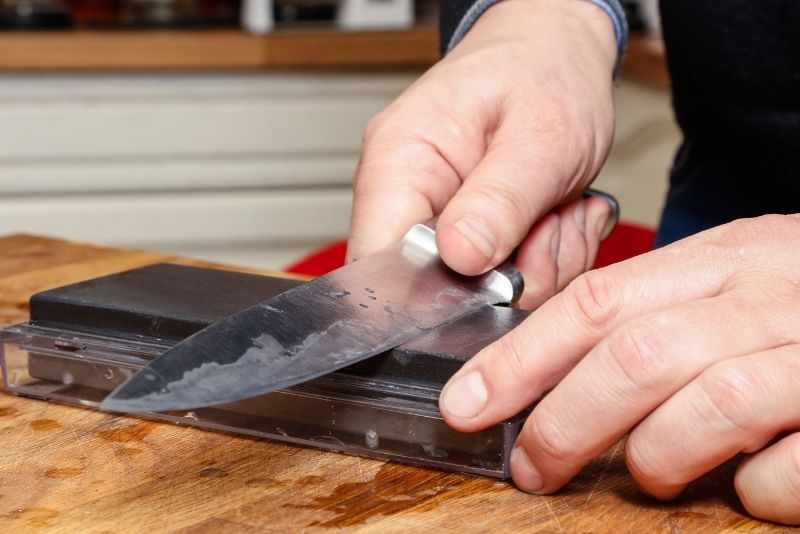
Keeping knives and tools sharp was a task taken seriously—dull blades simply weren’t acceptable. Whether it was kitchen cutlery or garden shears, boomers were expected to maintain them with care. The whetstone or sharpening rod wasn’t just a gadget; it was a necessity.
You’d take the time to learn the angle, the pressure, the steady rhythm needed to bring back a clean, sharp edge. It was a quiet, methodical chore—one that symbolized readiness and responsibility. After all, a well-kept tool was a safer and more effective one.
This chore taught precision, patience, and pride in craftsmanship. Sharpening wasn’t just maintenance—it was respect for the tools that helped run the household.
35. Cleaning Out the Fireplace or Wood Stove

Before central heating, keeping the fireplace or wood stove clean was essential. It wasn’t glamorous, but it had to be done. Boomers were often handed a small shovel and a bucket and sent to scoop out ash, wipe down soot, and prep the space for the next fire.
The task was dirty and required care—one wrong move and you’d end up with a cloud of ash in your face. But a clean stove meant efficient heat and a cozier home, so it couldn’t be ignored.
It was one of those gritty chores that taught resilience, responsibility, and the importance of keeping the heart of the home—its warmth—burning bright.






